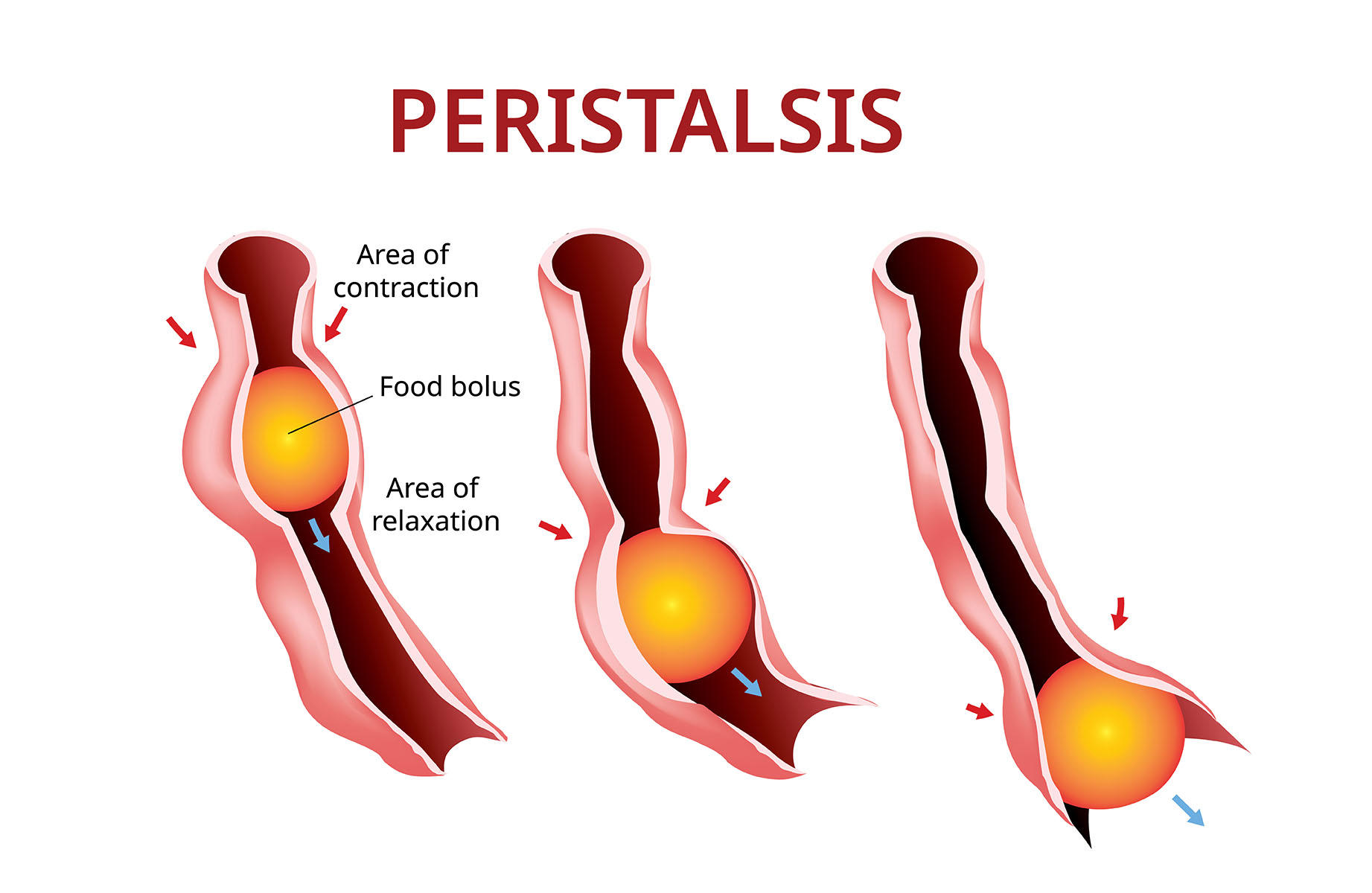
peristalsis
Definition
Peristalsis is a wave-like movement of muscles in the digestive tract that helps move food through your body. It's like when you squeeze a tube of toothpaste, and the toothpaste comes out in a long, smooth line. The muscles in your digestive tract squeeze and relax in a wave-like motion, pushing food down the tube from your mouth to your stomach, small intestine, and large intestine. Peristalsis is what keeps food moving through your body so you can digest it properly.
How can the word be used?
The peristaltic contractions of the colon help to move waste products out of the body.

Different forms of the word
Noun:
- peristalsis (the involuntary wave-like movement of muscles that propels food through the digestive tract).
- peristaltic (of or relating to peristalsis).
Adjective:
- peristaltic (of or relating to peristalsis).
Etymology
The word "peristalsis" is derived from the Greek words "peri" (around) and "stalsis" (contraction). The first recorded use of the word "peristalsis" in English was in the 18th century.
Question
What is peristalsis?